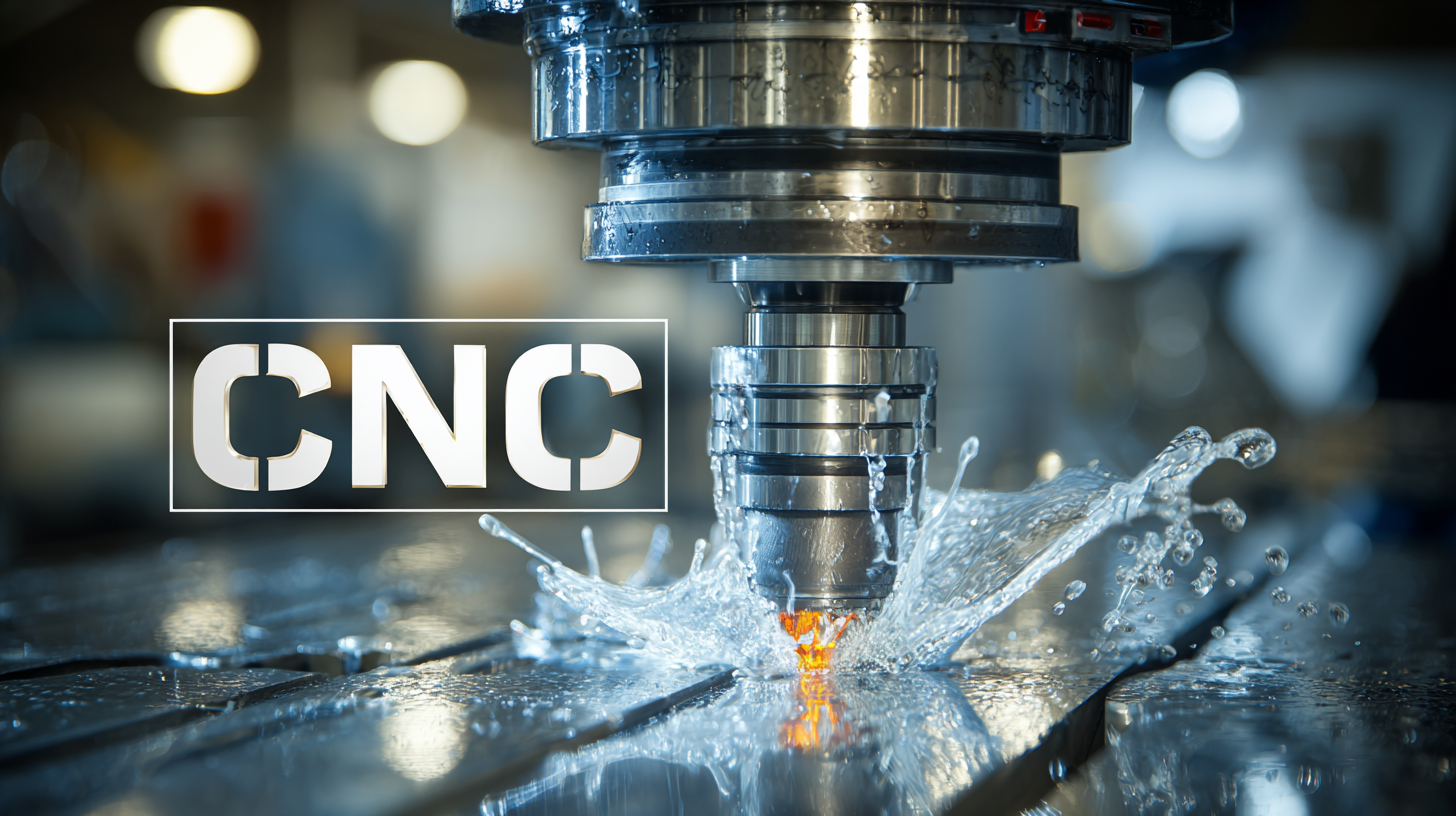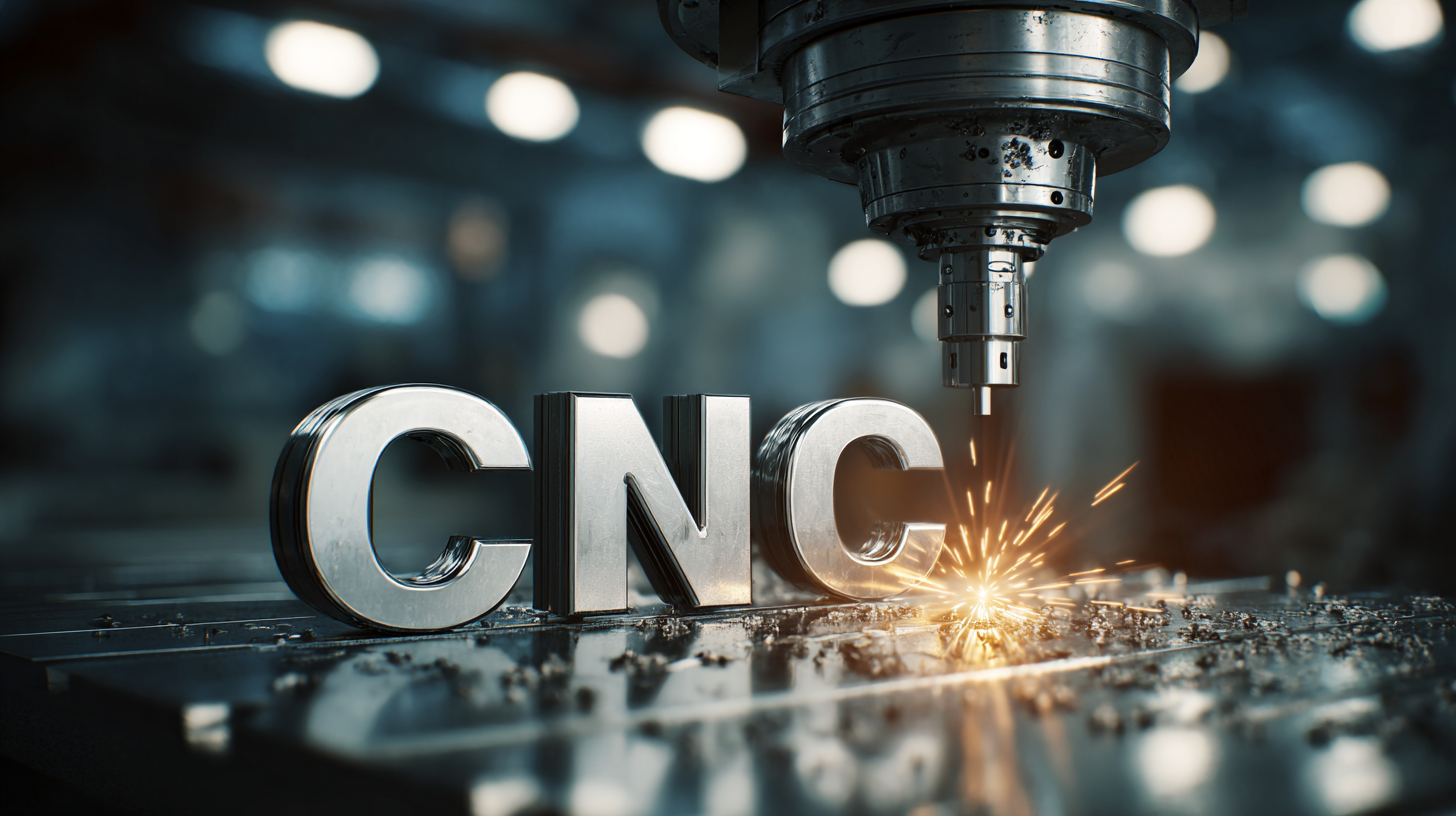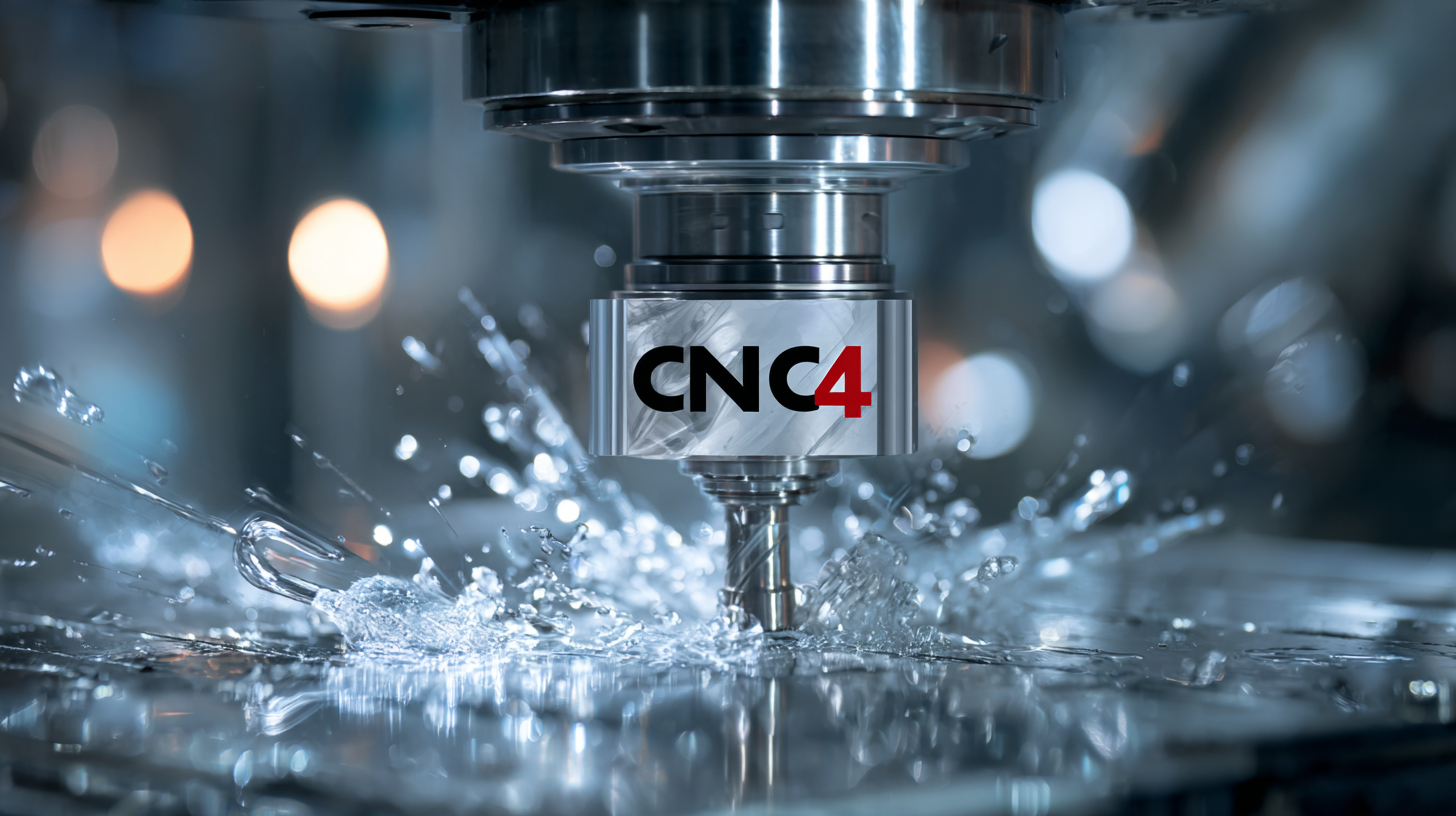The Future of Advanced CNC Machine Technologies in Global Manufacturing
As the global manufacturing landscape continues to evolve, advanced CNC machine technologies are playing a pivotal role in redefining production efficiency, precision, and versatility. These cutting-edge machines are not only streamlining operations but also enabling manufacturers to meet the ever-increasing demands for quality and customization in products. In this blog, we will delve into the detailed technical parameters of modern CNC machines, highlighting their features, capabilities, and the latest innovations that set them apart in the manufacturing sector.

We will also provide a comprehensive tutorial on how to leverage these technologies effectively, ensuring manufacturers stay competitive in a rapidly changing market. By understanding the future of CNC machines and their impact on global manufacturing, we can better appreciate the transformative potential they hold for industries worldwide.
The Rise of Smart Manufacturing: Integrating CNC Technologies with IoT
The manufacturing landscape is rapidly evolving with the rise of smart technologies, notably the integration of CNC (Computer Numerical Control) systems with the Internet of Things (IoT). This convergence is paving the way for more efficient and precise manufacturing processes. Real-time data collection from interconnected devices enables manufacturers to monitor performance, predict maintenance needs, and optimize production lines, significantly enhancing overall productivity.
The global CNC machine market is anticipated to experience substantial growth, projected to reach $195.59 billion by 2032. This surge reflects the growing demand for advanced manufacturing solutions that leverage IoT capabilities. As manufacturers adopt cloud-based systems, they can tap into real-time analytics to improve decision-making and streamline operations. Moreover, the integration of robotic automation with CNC systems is driving innovation by allowing quicker tool changes and improved material handling, ultimately leading to a more agile manufacturing environment.
As companies seek to harness the benefits of smart manufacturing, the combination of CNC technologies and IoT presents an opportunity to revolutionize their operations and stay competitive in the global market. Investing in this technology not only boosts efficiency but also sets the stage for future advancements in manufacturing processes.
The Future of Advanced CNC Machine Technologies in Global Manufacturing
This chart illustrates the projected rise in the integration of advanced CNC machine technologies and IoT in smart manufacturing over the next five years. The data highlights the expected growth percentage in different manufacturing sectors adopting these technologies.
Revolutionizing Production Efficiency: Advanced CNC Machine Features
The advent of advanced CNC machine technologies is transforming global manufacturing, particularly through innovative features that significantly increase production efficiency. According to industry reports, the CNC machining market is projected to reach a staggering $100 billion by 2026, driven by the increasing demand for automated and precise manufacturing processes. As manufacturers seek to enhance productivity and reduce operational costs, advanced CNC machines equipped with features such as multi-axis machining and real-time monitoring systems are becoming essential tools in modern production environments.

One notable advancement in this realm is the incorporation of artificial intelligence in CNC machining operations. AI-driven technologies have been shown to improve machining accuracy by up to 30%, reducing material wastage and minimizing downtime. Furthermore, these intelligent systems can predict maintenance needs and optimize machining parameters, leading to significant cost savings and increased throughput. As industries continue to embrace automation, the integration of AI in CNC machines will undoubtedly play a crucial role in shaping the future of manufacturing by enabling unprecedented levels of efficiency and precision.
Sustainability in CNC Machining: Eco-Friendly Innovations for Manufacturers
The manufacturing industry is increasingly recognizing the importance of sustainability, and CNC machining is no exception. According to a report by MarketsandMarkets, the global CNC machine market is projected to grow from $70.5 billion in 2020 to $100.2 billion by 2025, driven not only by advancements in technology but also by the demand for eco-friendly practices. Manufacturers are now focusing on innovative solutions that minimize waste and energy consumption, making CNC machining both efficient and sustainable.
One of the key eco-friendly innovations in CNC machining is the use of biodegradable cutting fluids. Research from the National Institute of Standards and Technology (NIST) indicates that these alternatives significantly reduce harmful emissions and environmental impact while maintaining machining performance. Additionally, companies are investing in energy-efficient machinery that uses advanced sensors and AI to optimize operations, reducing energy consumption by up to 30%. Such strategies not only contribute to a greener manufacturing process but also enhance operational efficiency, underscoring the integral role of sustainability in the future of CNC technologies.
Navigating the Skills Gap: Training for Future CNC Machine Operators
As advanced CNC machine technologies continue to evolve, the manufacturing industry faces a pressing challenge: a significant skills gap among operators. According to a report by Deloitte, by 2030, the manufacturing sector could be short of 2.1 million workers due to retiring professionals and a lack of skilled labor. This stark figure emphasizes the urgent need for comprehensive training programs designed to equip the next generation of CNC machine operators with the skills necessary to leverage cutting-edge technologies.

To bridge this gap, companies should invest in targeted training initiatives that blend theoretical knowledge with hands-on experience. Implementing mentorship programs that pair seasoned operators with newcomers can foster knowledge transfer while enhancing practical skills. Additionally, leveraging digital tools like virtual reality and augmented reality simulations can provide immersive training experiences, allowing trainees to engage with complex machinery without the risks associated with traditional methods.
Tips: Encourage continuous learning through online courses and certifications that focus on advanced CNC techniques and technologies. Also, consider partnerships with technical schools to create tailored curriculum programs that meet the specific needs of your manufacturing environment. By prioritizing skill development, companies can ensure a future workforce that is not only proficient but also adaptable to the rapidly changing landscape of advanced manufacturing.
Emerging Trends: AI and Automation in CNC Machine Technologies
The integration of AI and automation is steadily transforming CNC machine technologies, particularly in high-precision manufacturing sectors like aerospace, medical devices, electronics, and automotive industries. With CNC machining processes, electrical discharge machining, and laser cutting, manufacturers are producing intricate components using advanced materials such as stainless steel and titanium. The market for such technologies is projected to witness significant growth, driven by the increasing demand for automation, which enables greater efficiency and precision.
According to industry analyses, the global market for metal processing machinery is expected to reach approximately $92 billion by 2032, with a compound annual growth rate (CAGR) of 3.08% during the period from 2024 to 2032. Moreover, the drilling and bending machinery market, particularly in sectors like automotive and aerospace, is also growing, with an expected CAGR of 4.09%. As automation technologies become more sophisticated, the reliance on robotics and AI-driven systems in CNC machining processes is set to rise, leading to enhanced operational efficiencies and reduced production times in global manufacturing. The era of AI integration promises a revolution in how precision components are conceived and manufactured, heralding a new wave of technological advancements in the industry.
The Future of Advanced CNC Machine Technologies in Global Manufacturing - Emerging Trends: AI and Automation in CNC Machine Technologies
| Technology | Description | Impact on Manufacturing | Adoption Rate (%) | Future Growth Potential (%) |
|---|---|---|---|---|
| AI-Driven Predictive Maintenance | Utilizes machine learning to predict equipment failures before they occur. | Reduces downtime and maintenance costs. | 45 | 30 |
| Automated Machining Systems | Fully automated systems for machining with minimal human intervention. | Increases production efficiency and accuracy. | 60 | 35 |
| Smart Factory Integration | Linking CNC machines with IoT technologies for real-time data analysis. | Enhances decision-making and operational efficiency. | 50 | 40 |
| Collaborative Robotics (Cobots) | Robots that work alongside humans to enhance productivity. | Improves workplace safety and efficiency. | 30 | 50 |
| Additive Manufacturing Techniques | 3D printing technologies for creating complex parts. | Fosters innovation and reduces waste in production. | 25 | 60 |
 English
English  Česká republika
Česká republika Deutsch
Deutsch Dutch
Dutch Polska
Polska

